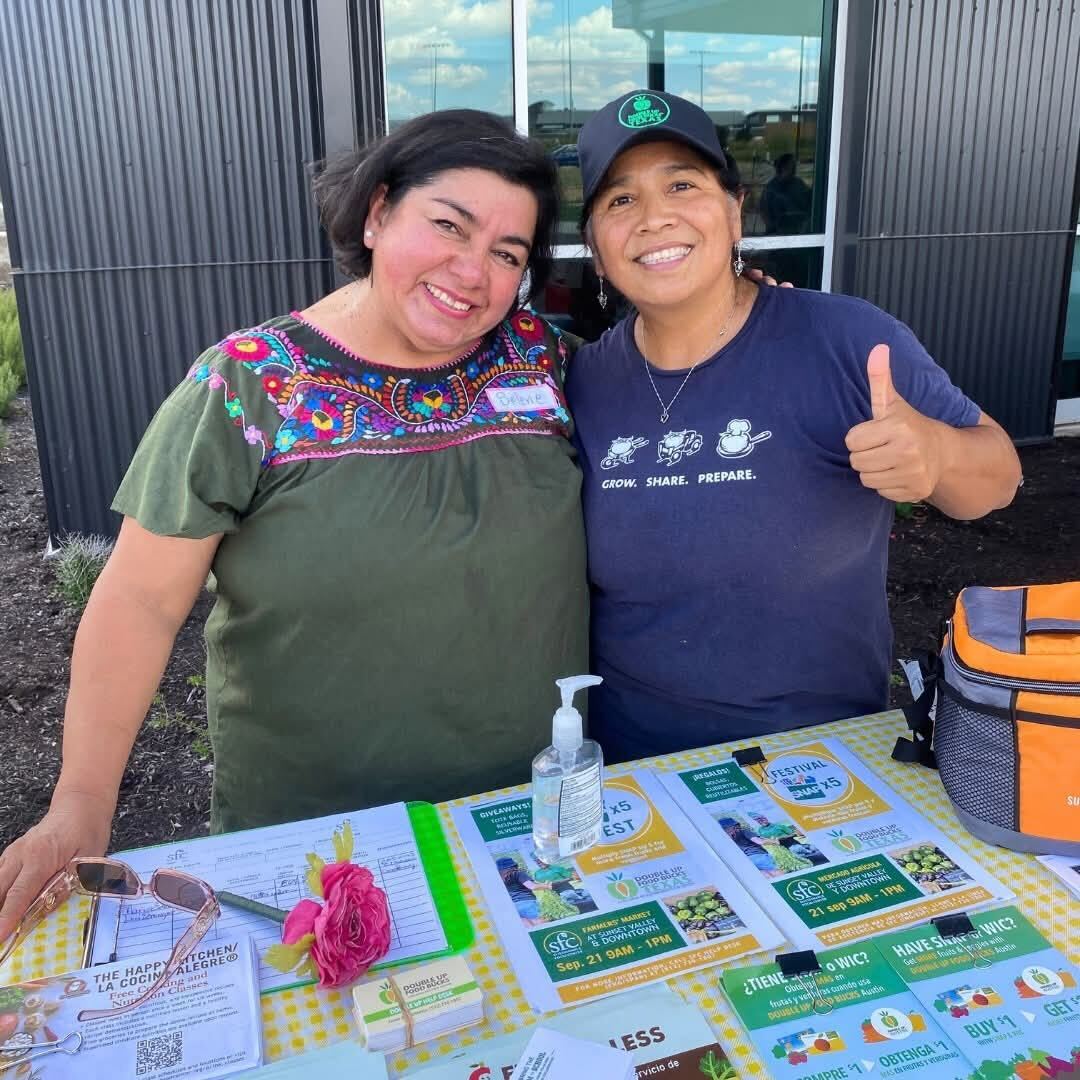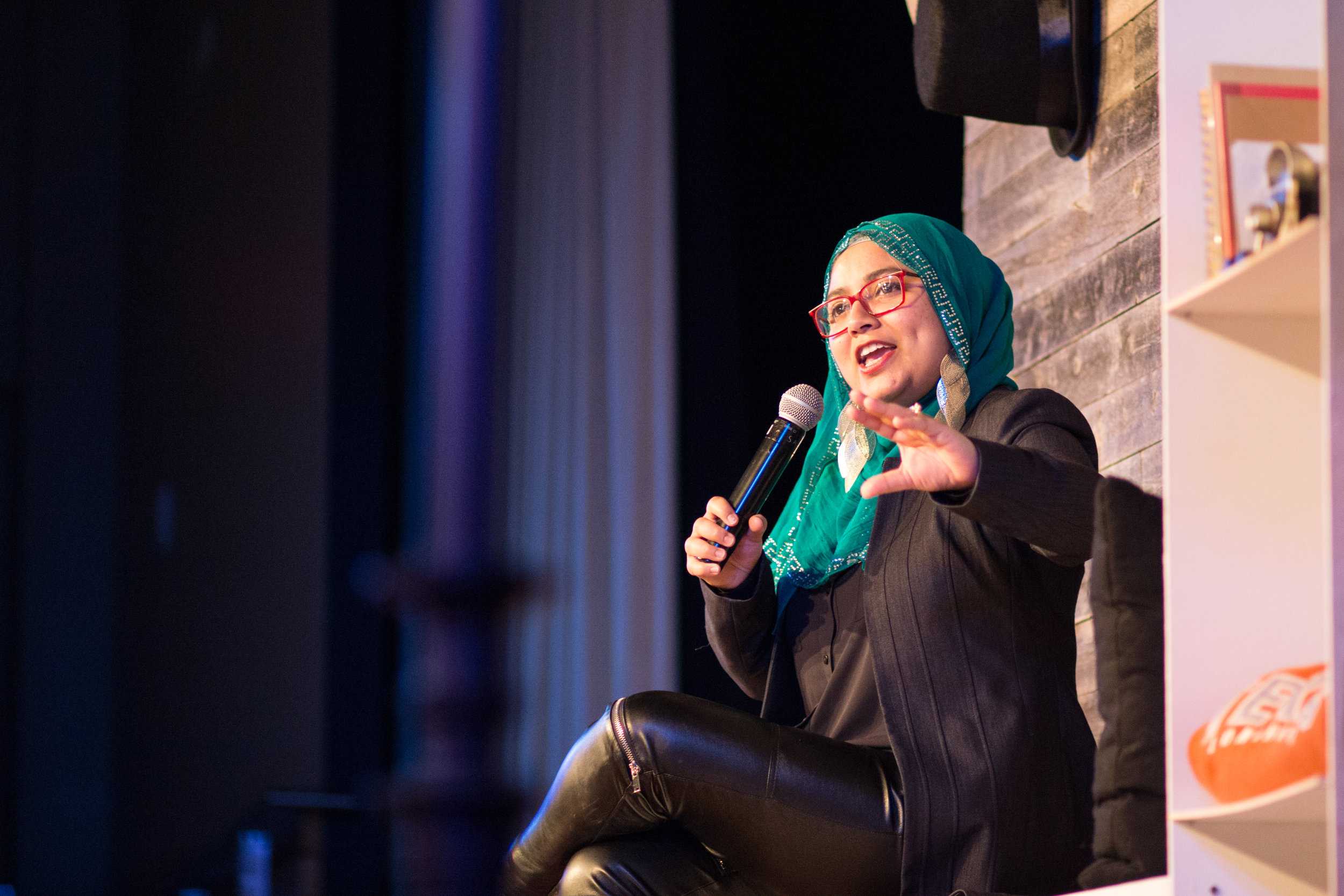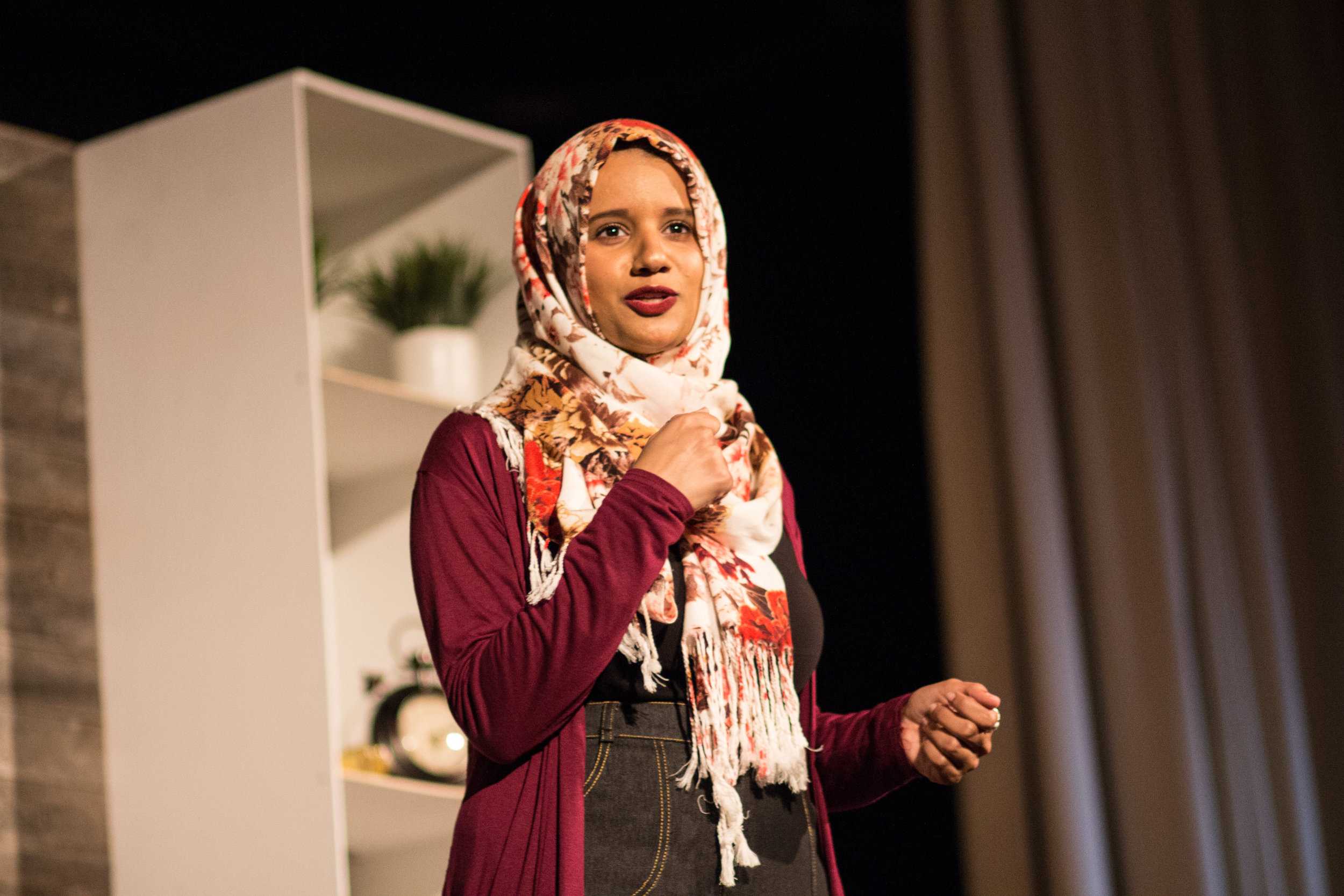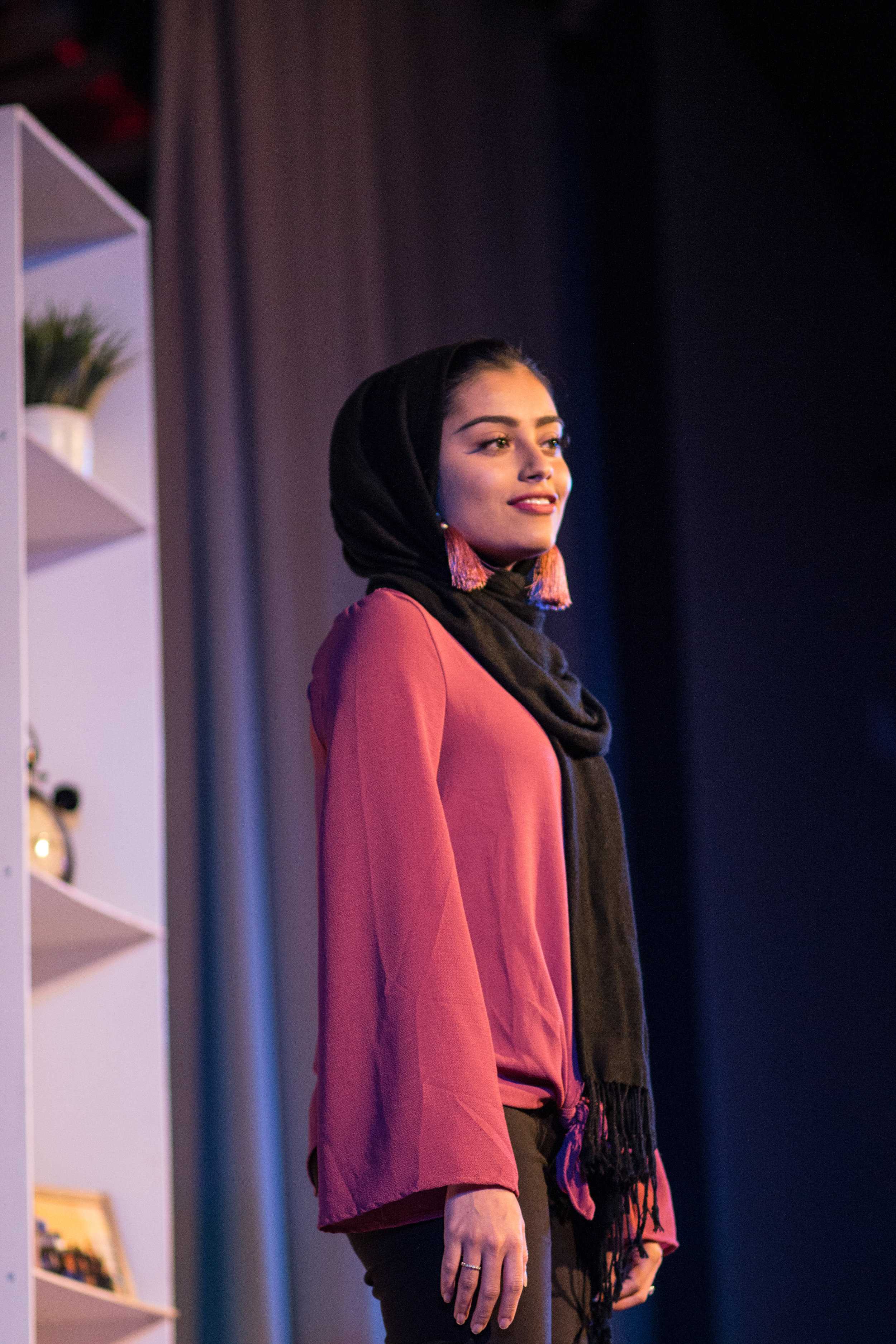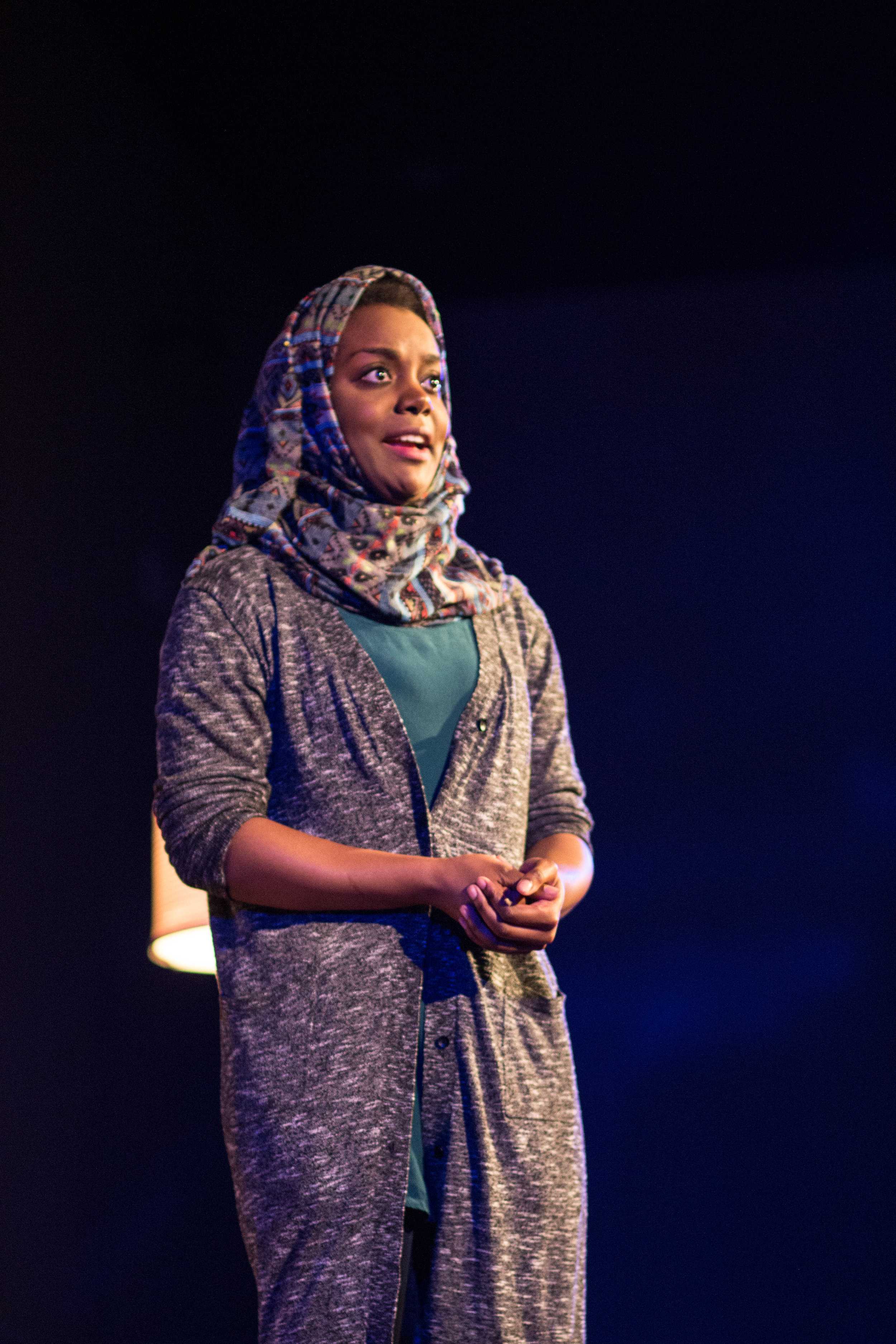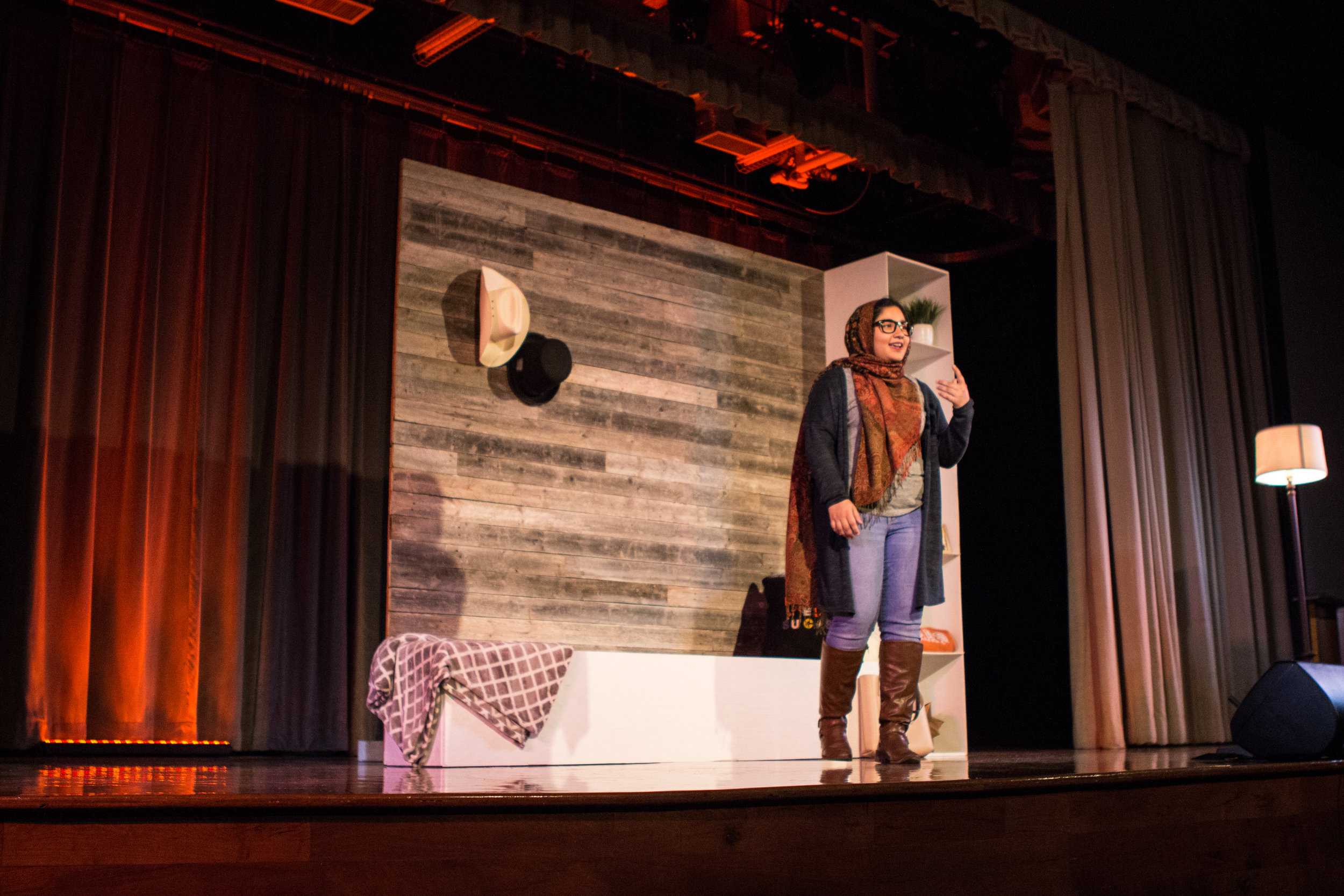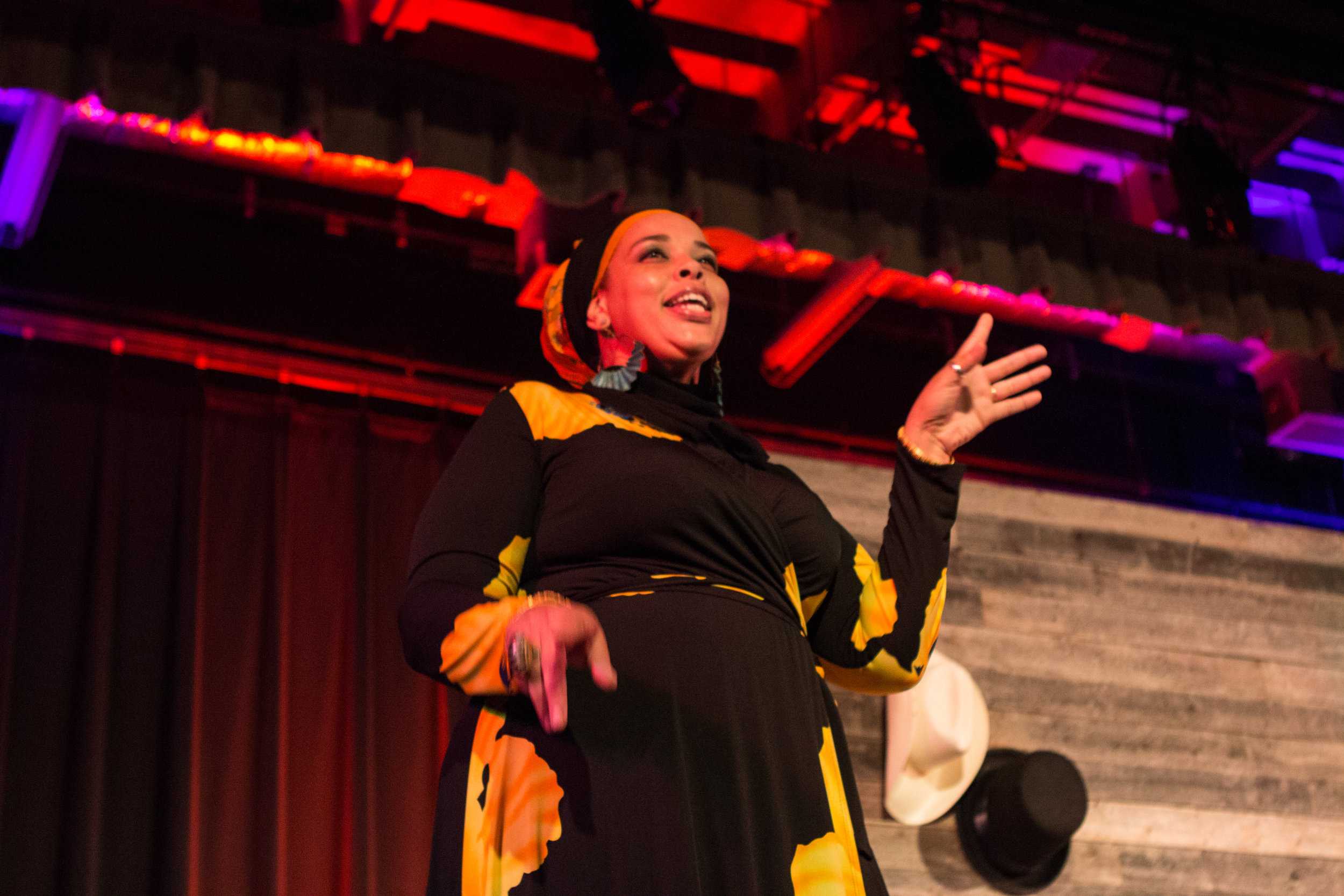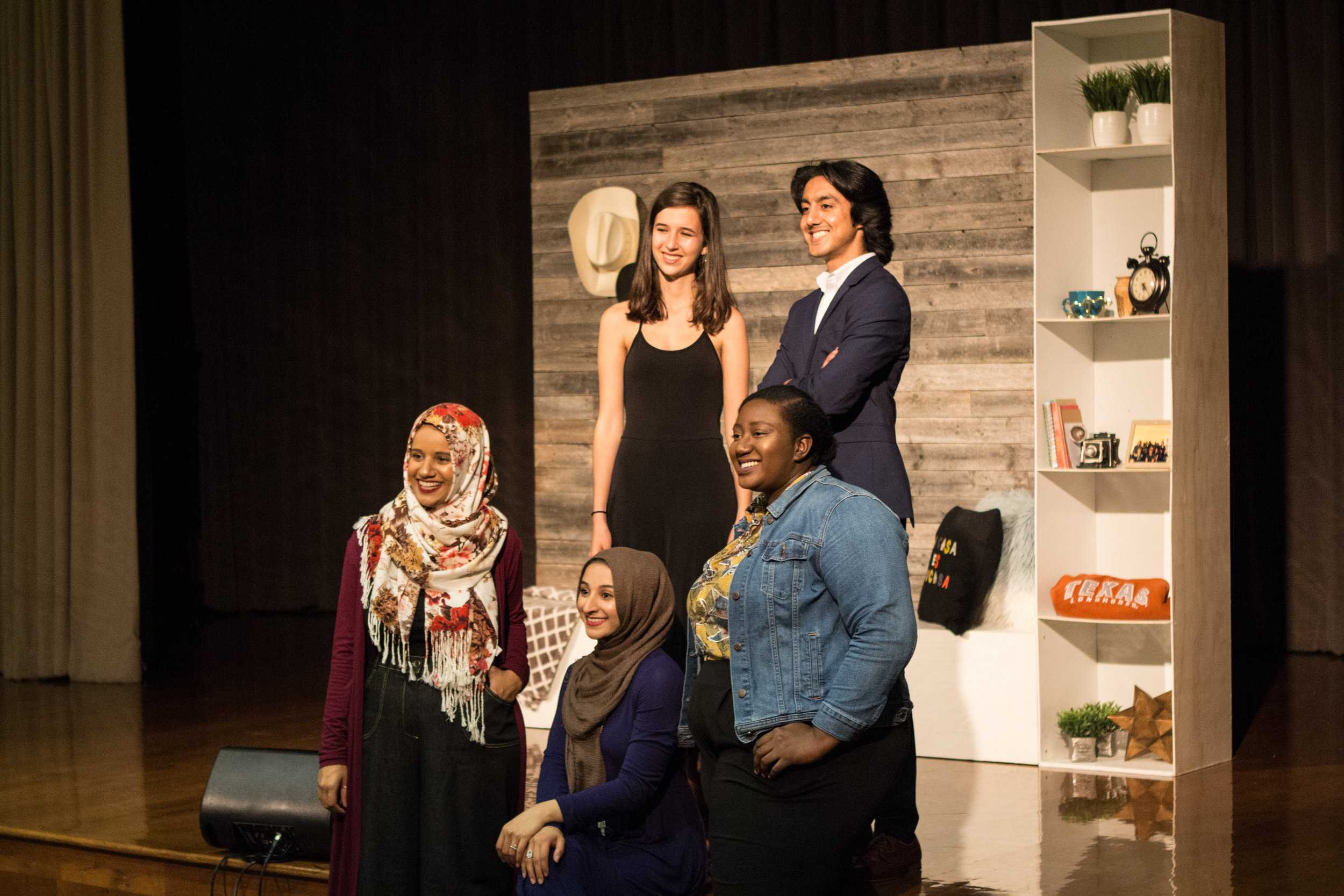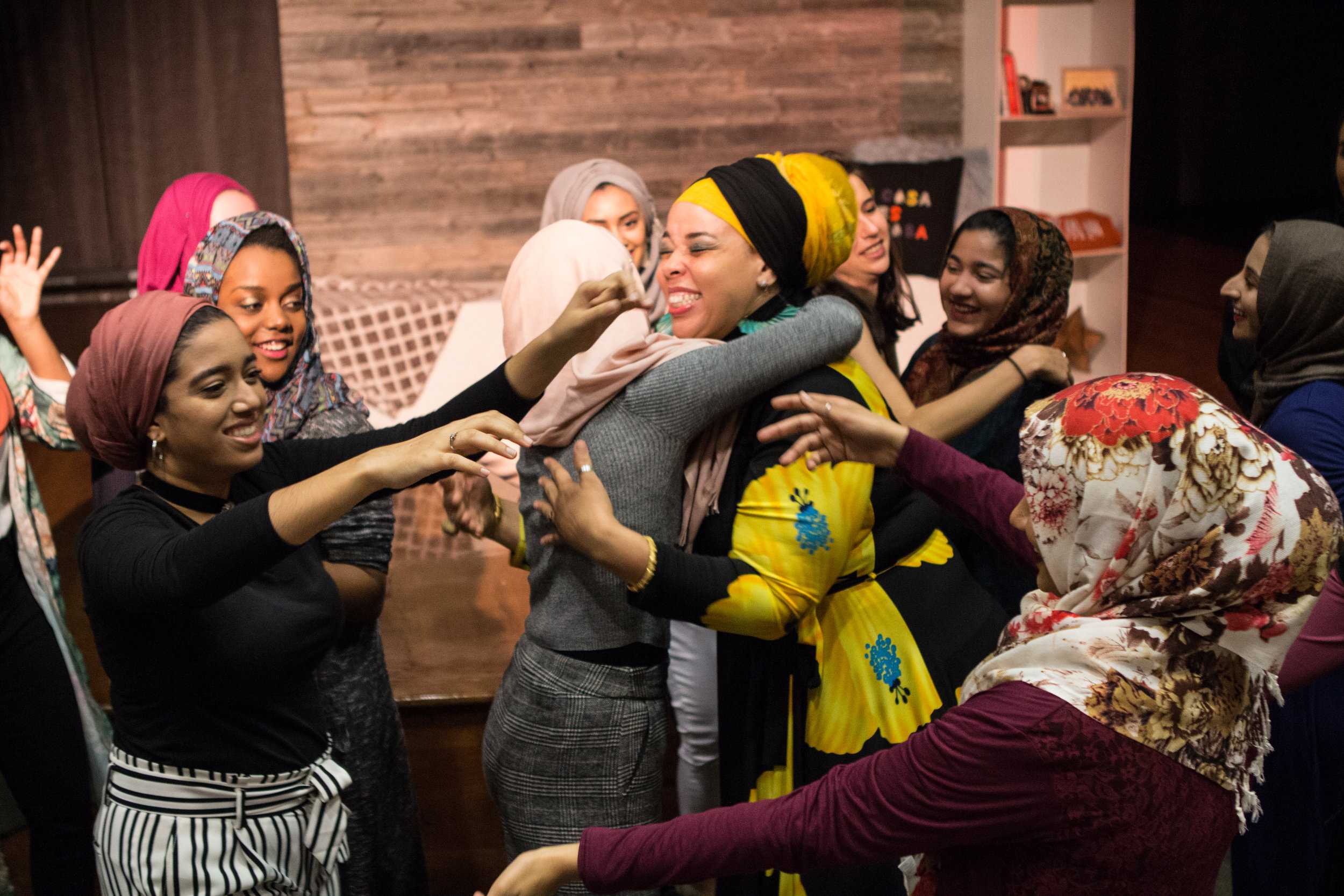Sahar Ullah, creator of the international theater project, Hijabi Monologues, answers questions in a post-show session.
Students at the University of Texas at Austin came together last week in an episodic performance that challenged stereotypes, combatted bigotry and deindividuation, and showcased the untold stories of Muslim American women.
Story by Sage Foster
Photos by Usama Malik
On Wednesday, March 28, UT Austin held its first-ever Texas edition of the Hijabi Monologues, a storytelling-based performance created by Sahar Ullah. The Hijabi Monologues attempts to provide a voice and a sense of individual identity to Muslim American hijabis, the term “hijabi” referring to women who wear hijabs. As Ullah noted in a session following the show, the hijab is not the focal point of the piece. Rather, the focus is on the women’s personal experiences, with the hijab influencing ways they are perceived and treated in various spaces. “At the very beginning, I just wrote whatever stories were inside of me, from my own experiences and from those of my community,” Ullah says.
While the majority of the pieces are written by Ullah herself, she also incorporated submissions from other women into the piece over the 10 years since its creation. Now, Ullah works in partnership with the performers and directors of each university or organization that hosts the piece as it tours. They collaborate to select the narratives from her story bank they believe will have the most significant impact on and connection to each community. One of the central ideas of the piece Ullah addressed was one that weaves through many of the narratives: the theme of simultaneous visibility and invisibility. “It’s being aware of being seen, and at the same time being very aware of not being seen,” Ullah says.
The first monologue was performed by Hasan Hashem, a graduate student in counseling psychology. To begin her monologue, entitled “I’m Tired,” Hashem posed a question to the audience. “Do you know what it’s like to represent a million human beings every day you walk out of your house?” Hashem says. “To be looked at as a representative of an entire world religion? A world religion! Do you know what that’s like?” She continued on to exasperatedly and poignantly express her exhaustion with the ignorant, racist, sexist and xenophobic treatment she and other hijabis face everyday, whether in a college classroom or while driving on the highway.
One anecdote in the monologue described two hijabis being violently berated by a man in an ice cream shop after he asks where they’re from, and they reply they’re from here. “Don’t fuck with me,” Hashem says, acting out the man’s response. “When I ask you where you’re from, you tell me where you’re from.” Addressing this portion of the performance, Ullah says, “I’ve heard that question a lot, and the assumption is that you must be from somewhere, ‘cause you can’t be from here.”
Ullah told a story about a man who was extremely angered by a performance of “I’m Tired” at a bookstore and demanded the mics be shut off. “Clearly this is bothering you because you’ve asked someone that question before, and you’re being called out,” Ullah says of the man’s reaction.
Toward the end of the monologue Hashem expressed the fear she feels vocalizing her anger at these agressions. That fear often comes from not wanting people to reduce or stereotype her and other Muslims as simply “angry.”
“Because I’m tired!” Hashem says on the reason she was drawn to this particular monologue. “It’s very heavy to carry all the expectations people have of a hijabi around. People perceive Muslims to be angry, but really, we’re just tired.”
Some of the creators behind UT’s production of Hijiabi Monologues pose for a pre-show picture.
Hashem contacted Ullah a year ago to bring the Hijabi Monologues to UT. She says that she felt a connection to this project in a way that a single discussion would not have been able to fully express. Hashem also expressed gratitude for the tremendous amount of support the performance received, as almost every seat in the vast Student Activities Center auditorium was filled. She wanted the audience to leave the performance with greater education and awareness. “If nothing else, a more nuanced understanding of what a hijabi is,” Hashem says. “An understanding that we’re not who you might want us to be.”
Government senior Tehreem Shahab performed a powerful monologue entitled, “Hurricane”. The story centered around the experience of attending a college football game for the first time and the trouble she encountered finding a place to pray during the game. Both humorous and highly observant, the monologue poignantly identified the ways in which many student hijabis must navigate an inaccessible and unwelcoming college culture that fails to recognize both their physical and emotional needs. This monologue was Shahab’s first performance in a stage production at UT, and she expressed immense gratitude for being part of such an important production. “When people see a hijabi, they tend to generalize her and turn each woman’s story into one experience,” Shahab says. “You don’t look at them as individuals.”
In addition to Shahab and Hashem’s monologues, eight other women delivered powerful stories about the experiences of hijabis in the United States. One monologue, entitled “People You Meet,” was performed by Alize Hassan, a senior public health major, and Nora Greenstein Bond, a Plan II and women and gender studies major. In the piece, the two women discuss the different groups of people who approach them on an average day, ranging from conservative southern men to “woke boys.” Though, like Shabab’s monologue, the piece was filled with humor, it also astutely shed light on the uncomfortable and often dehumanizing positions many hijabis are frequently put through as a result of others’ ignorance.
Jeremiah Abdullah, a first year acting major, was thrilled to work on the Hijabi Monologues in his first position as an assistant director. “We knew we had a mission on hand,” Abdullah says. “It wasn’t just a show. We wanted to start a conversation on campus.”
Performers embrace and encourage each other before the show.
Though the hijab is an important part of the narrative, the performance was successful in its efforts to focus less on the hijab as a garment and more on the individual stories and experiences of Muslim American women themselves. As Samiyah Al-Amin, a sophomore psychology major, says in the final monologue of the performance, “It’s a piece of fabric, not a magic wand.”





